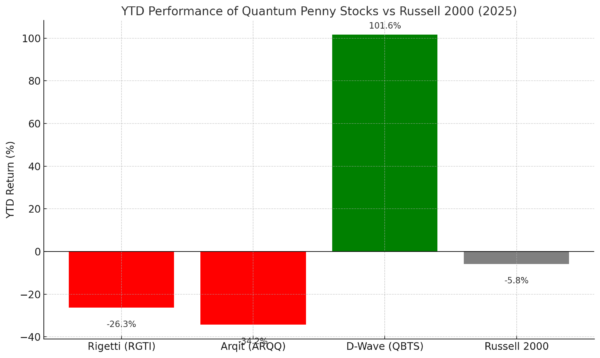5 Best Augmented Reality Stocks to Buy
Augmented reality (AR) is one of the most exciting technologies on the rise today. Due to this, it’s not surprising that lots of companies are investing in the virtual reality (VR) industry. They’re creating products that blur the line between the real world and the digital one. Whichever companies do this most successfully will surely reap rewards down the line.
Augmented reality technology is exciting not only for companies but also for investors. Since high-growth industries can lead to high-growth returns, many investors are eager to start buying augmented reality stocks.
To help out, I’ve selected a few of the best augmented reality stocks to buy. There’s also some overlap with the best VR stocks to buy. Feel free to check out those investing opportunities as well.

NOTE: I’m not a financial advisor and am just offering information and commentary. Please do your own due diligence before making any decisions.
Best Augmented Reality Stocks to Buy
Please note that there is a difference between virtual reality and augmented reality. Virtual reality uses technology to allow you to enter an entirely digital environment. Augmented reality, on the other hand, blends real life with digital imagery.
When you think of augmented reality stocks and technology, think of Tony Stark (aka Iron Man) fighting with the Avengers. He looks through his Iron Man suit and can see the world in front of him. However, he can also see data and graphics sent to him by his computer, Jarvis. You can also think of Pokémon Go, the incredibly popular game where users can look at their phones and see Pokémon running around in their yard.
So which stocks are the best when it comes to augmented reality?
Microsoft and AR HoloLens
Microsoft (Nasdaq: MSFT) is one of the best augmented reality stocks. It has a host of different augmented reality products on the market. It’s also in a unique position to target both consumers and businesses. For example, Microsoft can use its technology to improve the gaming experience on the Xbox and to help Lockheed Martin build airplanes.
One of its products, the HoloLens 2, can be used in manufacturing, healthcare and education. It’s already being used by major companies such as Airbus, Lockheed Martin and Mercedes Benz. Instead of reading a manual to try and assemble a product, you can use the HoloLens 2, which sits over your eyes and guides you directly through the process. As you can imagine, this makes unfamiliar tasks significantly easier.
The HoloLens 2 has been so effective for companies that Shelley Peterson, a VR user at Lockheed Martin, exclaimed, “Using mixed reality has allowed us to reduce our touch labor by 90%. We’re now completing eight-hour activities in 45 minutes.”
This headset also has significant military applications and helped Microsoft win a $480 million deal to outfit the U.S. Army. If Microsoft can help improve the Army’s training and battle-readiness, that will surely lead to even bigger contracts down the road.
Increased government spending can help push augmented reality stocks higher. And Microsoft has already grown its revenue every year for the past five years. Its stock has rallied 180% since 2019.
Snap Inc. Is a Top Consumer Augmented Reality Stock
Snap Inc. (NYSE: SNAP) is the parent company of the incredibly popular photo-sharing app Snapchat. The company went public in 2017, and the stock shot up more than 200% in its first three years. However, what started as a fun way to filter pictures is quickly growing into serious technology.
Snap has made a big push to become one of the top augmented reality stocks through Snapchat Spectacles. They’re glasses that you can put on for immersive experiences. When Snap looks to the future of AR, it sees an improved shopping experience. Snap wants users to be able to try on products digitally and, eventually, purchase them through the Snapchat app. It recently purchased Vertebrae to help make this happen.
Snap still isn’t profitable, but it has been able to grow its revenue by about 45% annually since 2017. If it continues to grow at this rate, it will be able to expand its AR efforts even more.
Facebook Pushes Augmented Reality Growth
As is the case with most things technology-related, Facebook (Nasdaq: FB) is leading the way. This is also true for augmented reality, where the social media behemoth that owns Instagram and WhatsApp is making big strides.
In its most recent earnings report, CEO Mark Zuckerberg announced…
I believe that augmented and virtual reality are going to enable a deeper sense of presence in social connection than any existing platform. They’re going to be an important part of how we will interact with computers in the future. So we’re going to keep investing heavily in building out the best experience this year, and this accounts for a major part of our overall R&D budget growth.
Part of this vision is expanding on the company’s already market-leading Oculus headsets in order to create a more valuable AR experience. Facebook has also announced that it’s teaming up with the maker of Ray-Bans to make these glasses as fashionable as they are useful. This easily makes Facebook one of the best augmented reality stocks going forward…
Right now, AR is still a tiny sliver of Facebook’s revenue. Of the $117 billion in net income that it brought in during 2021, a good chunk of it came from the company’s core advertising business. However, it’s clear that Zuck & Co. see augmented reality as a big part of Facebook’s future.
Google as a Top AR Stock
Google parent company Alphabet (Nasdaq: GOOG) has two main augmented reality offerings: Google Lens and Google Maps AR. The Google Lens offers a new way to search with Google. It essentially lets you scan products in front of you in order to get more information. This could entail anything from identifying plants to buying a product to solving math problems.
Google Maps AR takes the Google Maps experience to the next level by putting relevant information directly in front of the user to help them explore their surroundings.
Both of these AR applications could enhance the experience of two of Google’s most popular features (search and maps). With some of the greatest minds working for the company, it won’t be at all surprising if Google becomes the top augmented reality company.
Google’s stock has rallied 150% since 2019, and the company posted total revenue of $256 billion in 2021.
Now, let’s take a look at the final best augmented reality stock to buy.
Etsy and AR Shopping
One company that you might not expect to be one of the best augmented reality stocks is Etsy. Etsy isn’t a trillion-dollar technology company or a social media giant that’s trying to take over the world. Instead, it’s a simple online marketplace where people can buy and sell homemade goods.
Etsy went public in 2015 and has impressed investors so far. Its stock is up 600% since its IPO. It also posted impressive growth during the COVID-19 pandemic, when lots of people turned to Etsy to buy products while traditional retailers were closed. It recorded 110% year-over-year revenue growth from 2019 to 2020, reaching just under $2 billion in annual revenue.
Just like Snap, Etsy wants to use augmented reality to enhance the online shopping experience. For example, if you’re buying a piece of art on Etsy, it can be tough to judge how it will look in your apartment. Etsy plans to implement augmented reality so that users can see how products look in their home before purchasing them. It announced that work had begun on the beta version of this feature in June 2020.
Opportunities Beyond Augmented Reality Stocks
Augmented and virtual reality stocks go hand in hand. Feel free to click on that link for even more investing opportunities.
There are many investing opportunities out there, but not all are created equal. And it’s easy to get caught up in the noise. Keep a close eye on the best augmented reality stocks that may enhance your portfolio!
About Teddy Stavetski
Ted Stavetski is the owner of Do Not Save Money, a financial blog that encourages readers to invest money instead of saving it. He has five years of experience as a business writer and has written for companies like SoFi, StockGPT, Benzinga, and more.





